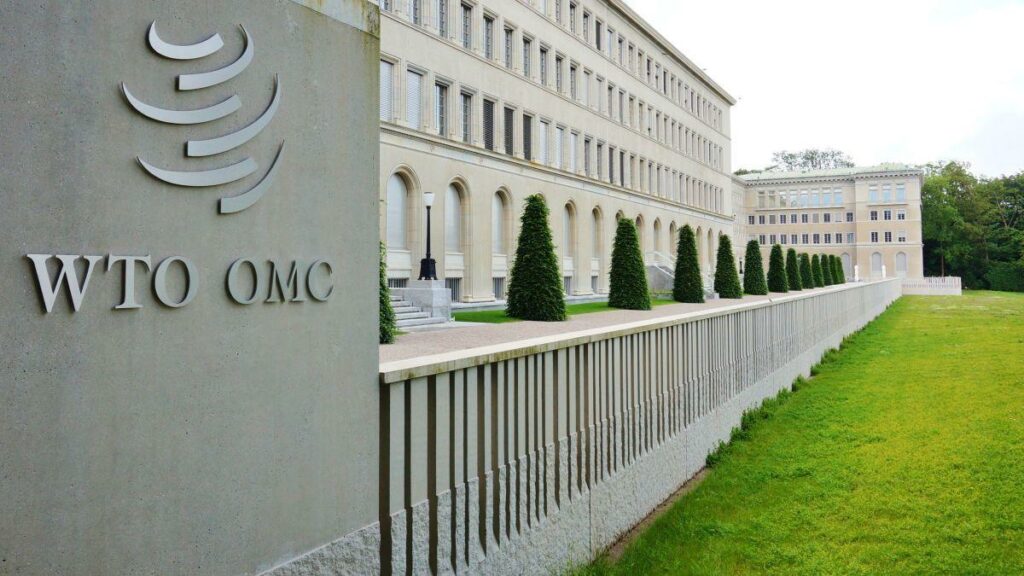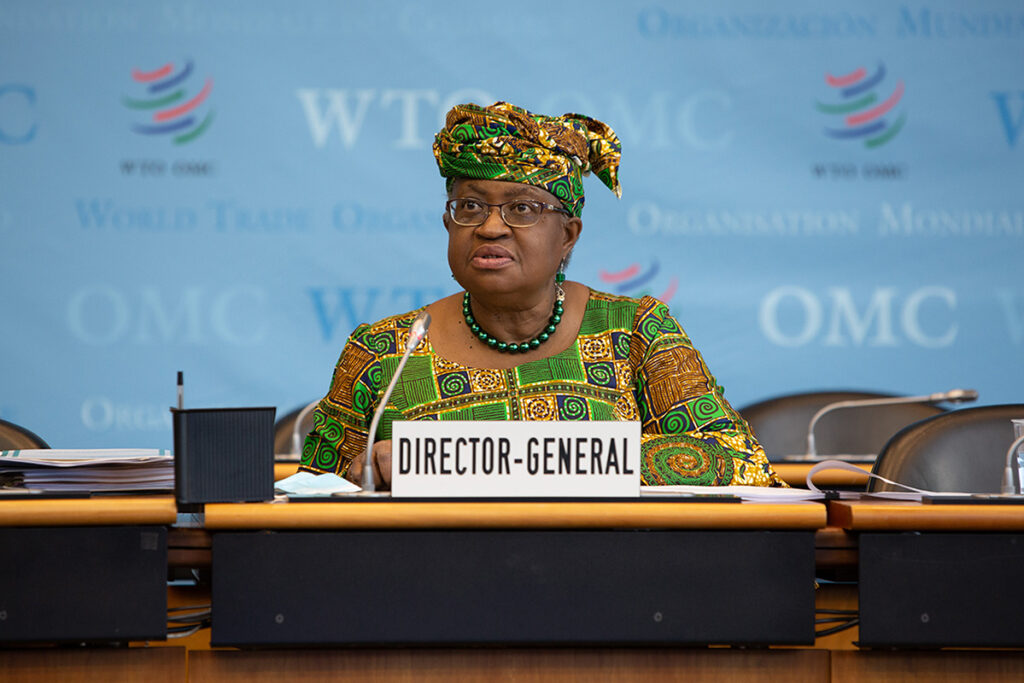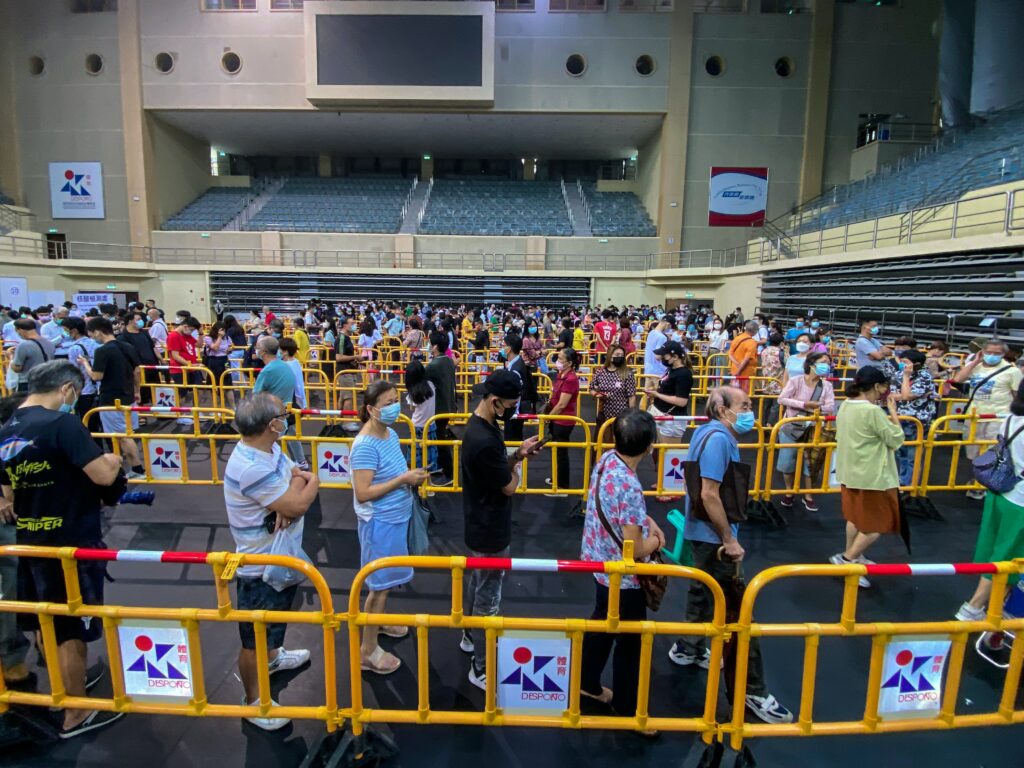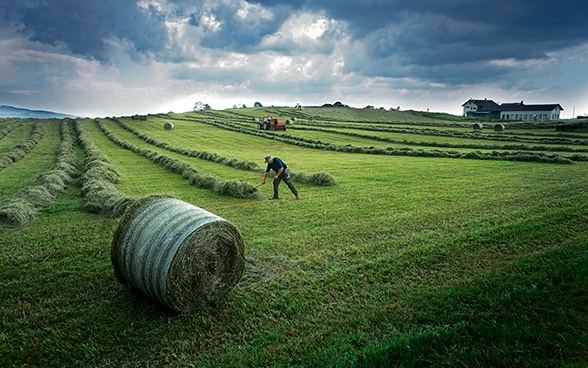lun, Juin 13th 2022

The Geneva-based organization may be extinct before it sees its 30th birthday.
Traffic came to a halt in Geneva over the weekend as hundreds of protestors gathered to bring awareness to various issues the World Trade Organization (WTO) will be discussing this week as part of its 12th Ministerial Conference. And while the protestors are focused on issues such as food insecurity and vaccine equality; experts say the real question is whether the WTO is fit to govern in a 2022 world, or at all.
The once biennial meeting has not taken place in nearly five years thanks to Covid-19 delays. This year’s meeting runs from June 12th through the 15th, with Director-General Dr. Ngozi Okonjo-Iweala at the head. Okonjo-Iweala has served twice as her native Nigeria’s Finance Minister, as well as a 25-year career at the World Bank. She began her WTO career in March 2021.

The Harvard-educated Director-General of the WTO, Dr. Ngozi Okonjo-Iweala (Geneva Business News).
A look back at the WTO
Since the WTO was created in 1995 for the advancement of trade globalization, tariffs have fallen by nearly 10%, international trade volumes have more than doubled and third-world countries have risen in socioeconomic ranks. The WTO has also aided companies in taking advantage of raw materials and inexpensive labor in countries such as China.
For 20 years after its inception, hyper-globalization ruled. With the election of more nationalist leaders, such as Donald Trump in the U.S., trade wars erupted and globalization trends stalled.
Quickly after, the Covid-19 pandemic arrived, and with it lockdowns and closed borders. Countries turned inward to hoard face masks, pharmaceuticals and food supplies. Finally, Russia’s invasion of Ukraine has further exacerbated food insecurities, and made nations anxious about depending upon one another.
The WTO’s ability to live out its purpose – to secure peace, prosperity and a sustainable economy – has diminished greatly in the past few years. This week’s conference brings up broader questions about the direction of the global economy and whether the future will be a unified or fragmented one.

The Covid-19 pandemic brought several issues to head at the WTO; most notably, it’s IP protection over vaccines.
The biggest issues
Over the next three days, the 164 member countries will focus on a variety of trade issues; but, these are the three biggest ones to watch:
India and South Africa are pushing other member countries to enact waivers on the WTO’s intellectual property protections over vaccines. The Covid-19 pandemic has highlighted how poorer countries must make cheaper, generic versions of vaccines, and that their citizens bear the brunt of such IP protections. A waiver would allow governments to issue licenses to make certain vaccines domestically; but the U.S. is opposed. The U.S. pharmaceutical industry says such a waiver would deter investment in future vaccines.
Nearly all WTO member countries say they are in favor of reducing the $540 billion in agricultural subsidies, as current subsidies distort trade and drive up prices. India and her compatriots oppose reducing subsidies, saying that it prevents their farmers from stockpiling foodstuffs in case of emergencies.
The United Nations says that fish are being removed at biologically unsustainable levels – an increase from about 10% too much in 1974 to 34% in 2017. The UN estimates that $20 billion of the $35 billion going to fishing subsidies directly contributes to over-fishing. India and China are opposed to reducing subsidies.

Reducing farming subsidies may be the issue with the best chance of accord, if the WTO conference can sway India this week.
Looking to the future
“Now more than ever the WTO must live up to its importance,” said Swiss Economics Minister Guy Parmelin at the opening ceremony on Sunday in Geneva. He emphasized that all 164 member countries need to agree upon solutions quickly, whether it be on “climate change, health, biodiversity or prosperity.”
“The WTO is an institution in search of solutions and common rules. Its successes are tangible because world trade is an engine of growth,” he added. But that requires accord in a group of nations that has found very little in the past few years.
Director-General Okonjo-Iweala acknowledged before the conference began that Geneva-based organization is fighting an uphill battle.
“The road will be bumpy and rocky. There may be a few landmines on the way,” she said, adding “We’ll have to navigate those landmines and see how we can successfully land one or two deliverables.”
Cet article peut être librement partagé et réimprimé, à condition qu'il renvoie clairement à l'article original.
